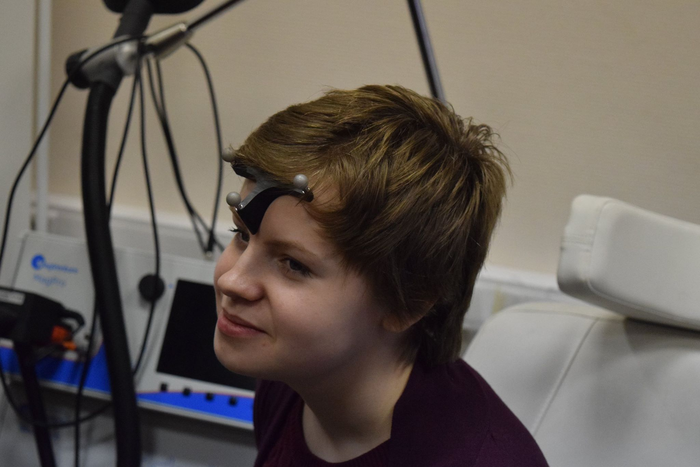HSE University researchers have found that if cortical excitability is suppressed, the conflict between self-interest and prosocial motivations is resolved in favour of the latter—but only in cases when this conflict is really present. The paper, titled ‘The Role of the Prefrontal Cortex in Prosocial and Self-Maximization Motivations: An rTMS study,’ was published in Scientific Reports.

Credit: HSE University
HSE University researchers have found that if cortical excitability is suppressed, the conflict between self-interest and prosocial motivations is resolved in favour of the latter—but only in cases when this conflict is really present. The paper, titled ‘The Role of the Prefrontal Cortex in Prosocial and Self-Maximization Motivations: An rTMS study,’ was published in Scientific Reports.
Many theories of economic behaviour ignore the existence of prosocial motivation in humans. It is believed that people pursue exclusively selfish interests and are not interested in making decisions that are also beneficial to others. However, neuroscientific research proves that this is not the case.
For example, when interacting with a stranger, it is more profitable for an individual to allocate resources in whatever manner allows them to gain as much as possible. But people are more likely to share equally, even when there is no punishment for selfishness. That is how our desire for cooperation and justice works, which is probably inherent.
Researchers know that the right dorsolateral prefrontal cortex is involved in choosing between self-interest and prosocial motivation. But it is still not entirely clear what exact behaviour is triggered by the activation of this area. In some studies, suppression of the region’s activity led to prosocial behaviour, while in others it resulted in an active pursuit of selfish interests. In some cases, it produced no effect at all.
In order to specify the role of the dorsolateral prefrontal cortex in such situations, HSE University researchers carried out an experiment with the use of transcranial magnetic stimulation (TMS), which suppresses the excitability of the stimulated area of brain.
A total of 46 participants aged 18 to 27 were split into two groups. The first group received dorsolateral prefrontal cortex stimulation for 5–7 minutes, while the second group received stimulation of the brain areas responsible for visual perception. The participants then played two economic games in a row—a ‘dictator’ game and a ‘generosity’ game.
In the dictator game, a participant playing the dictator shares a certain amount of resources between themselves and a partner. The partner is only capable of accepting the dictator’s offer. In the generosity game, one participant also decides on how much to give to their partner. However, the amount of resources they get themselves is fixed and does not depend on the other player’s share.
The researchers found that suppressing the excitability of the dorsolateral prefrontal cortex made participants of the ‘dictator game’ give more to their partner compared to those whose visual cortex was stimulated. No such effect was observed in the ‘generosity game’: participants shared in about the same manner regardless of the type of stimulation.
‘These results may prove that the dorsolateral prefrontal cortex is involved only if the participant experiences a conflict between self-interest and prosocial motivation, while its suppression leads to the resolution of this conflict in favour of other people’s interests. That’s why the stimulation of this area only impacts behaviour when the game motivates this conflict,’ said Oksana Zinchenko, Research Fellow at the International Laboratory of Social Neurobiology and co-author of the paper. ‘In the generosity game, there was no conflict between self-interest and prosocial motivation, since the participant’s personal profit did not depend on their generosity towards their partner. In the dictator game, this conflict is more apparent.’
Journal
Scientific Reports
DOI
10.1038/s41598-021-01588-6
Article Title
The Role of the Prefrontal Cortex in Prosocial and Self-Maximization Motivations: An rTMS study
Article Publication Date
16-Nov-2021




